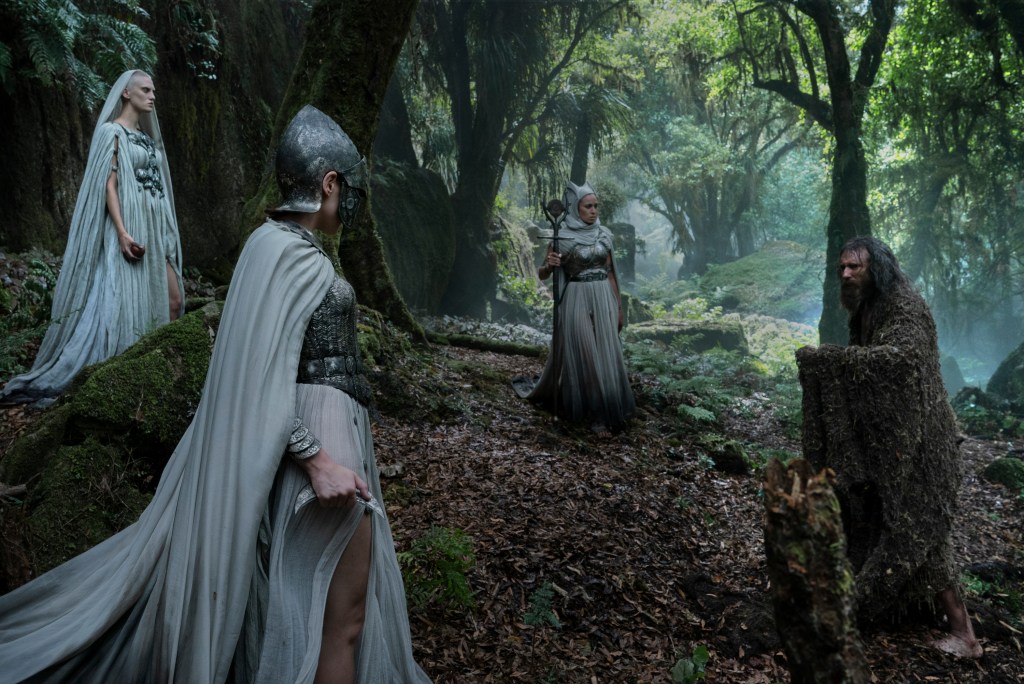The Lord of the Rings: The Rings of Power reached its epic season 1 conclusion, confirming two major identities in the process. Episode 8 served as the finale for the Rings of Power’s first outing, revealing exactly who is the Istar, or Istari. Though his name wasn’t said outright, the use of the phrase “always follows your nose” all but outright confirms who the Stranger is.
LOTR Rings of Power: Who is the Stranger, or Istar?

Looking back at the phrase “if in doubt, always follow your nose,” Lord of the Rings fans will recognize it as one said by none other than Gandalf, to young Meriadoc Brandybuck, in The Lord of the Rings: The Fellowship of the Ring. This was a subtle way of giving audiences the chance to connect the dots on their own, rather than spoon-feeding them the information that the Stranger is indeed the wily Wizard. Though he cannot remember his name just yet, it’s clear that the Istar’s memories are starting to come back to him. It’s just a matter of time before he remembers all about his past.
Earlier on in the episode, the Stranger was hailed as Lord Sauron by the three in white cloaks that had been tracking him. They captured him and vowed to help him remember his evil ambition, but instead, they inadvertently helped him unlock the goodness that resided within. He used the staff of the group’s leader to defeat them, revealing each of the mysterious figures to be wraiths. Now, he sets off with young Harfoot Nori for Rhûn, hoping to discover more about his purpose.
Istar, Ishtar, or Istari?

There has already been some fierce debate about the language used in the Rings of Power finale, and indeed throughout the entire series. Episode 8 saw the Stranger use the word “Istar” to define his identity as a Wizard, but that isn’t a word that has been used before in the works of author J. R. R. Tolkien. “Istari”, on the other hand, is the name given to the five Maiar spirits who were sent to Middle-earth to help the Free Peoples against the looming threat of Lord Sauron. Then there’s “Ishtar,” which simply appears to be a spelling mistake that is being commonly used online.
In Tolkien’s works, the Istari are only sent to Middle-earth at the start of the Third Age. With Rings of Power still very much taking place in the Second Age, it’s clear that the creative minds working on the series are taking a lot of creative license in their approach. Whether that’s a good or a bad thing, of course, will depend entirely on your personal taste.







